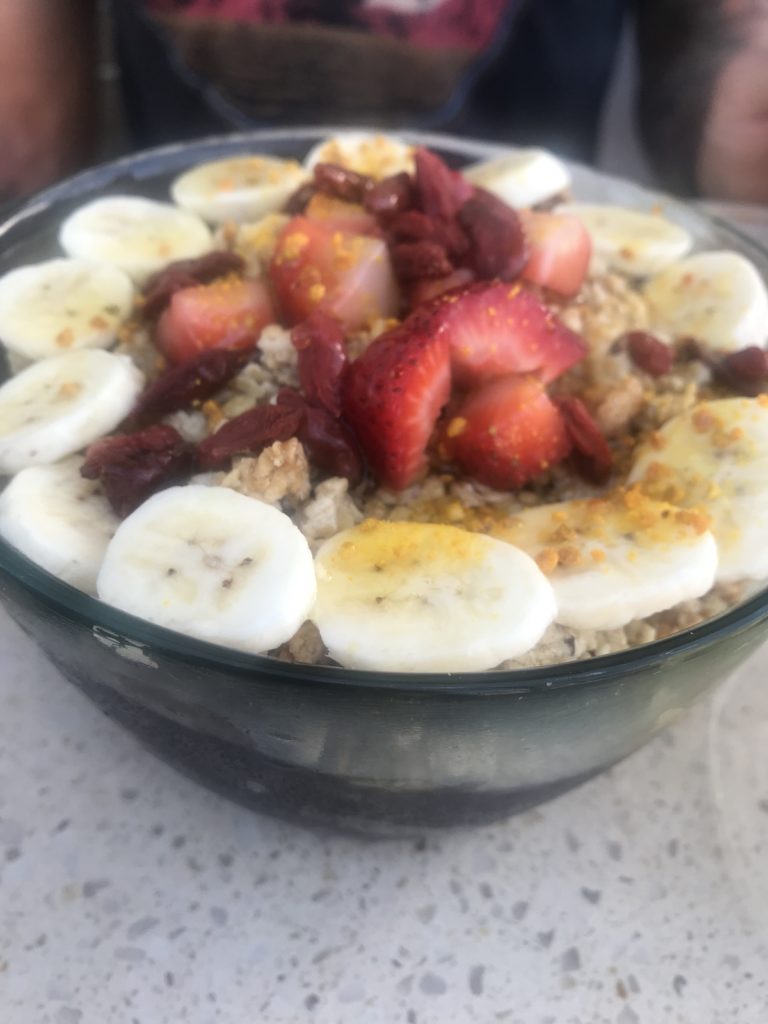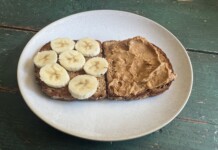We all have experienced being “hangry,” feeling so hungry you get angry, right?! Well, its not surprising considering cyclists and other endurance athletes need more nutrients than most people. And I’m not only talking about calories. Our bodies demand more vitamins and minerals to keep up with the massive hours of exercise we put them through, so we must compensate with nutrient dense foods or supplements to keep performance and recovery at their peak. The wear and tear of intense activity necessitates increased intake of micronutrients, so choosing nutrient dense foods can help us perform better, feel stronger, and lend to our long-term health. Here is a list of essential vitamins and minerals we should all be sure to incorporate daily, along with food examples for snacks and meals. So, in no particular order of importance, here are 10 crucial nutrients to put on your daily menu.

1. Vitamin B
Lacking the energy to push out those last few intervals? Chances are you’re low on this group of micronutrients, which includes vitamins B6 and B12, thiamin, riboflavin and folate. The body uses these to convert protein and sugar into energy and to produce red blood cells.
*Foods to Fuel with: Tuna, black beans, lentils, and peanuts. Add a few to sandwiches or tacos!
2. Calcium
Excessive training may cause hormonal declines that can compromise bone formation, possibly leading to premature, irreversible osteoporosis. Recent research shows that endurance athletes of all ages and gender experience testosterone deficits that also can cause osteoporosis. All athletes should make sure they get 1,200 to 1,500 mg of calcium daily from food or supplements.
*Foods to Fuel with: dark leafy greens, dairy products, beans, fortified cereals, and broccoli. A little of each in every meal!
3. Vitamin C
This antioxidant is abundant in many foods so you likely don’t need to supplement. It is crucial in tissue regeneration and helps the body absorb Iron, so be sure to get lots in your fruits and veggies.
*Foods to Fuel with: Oranges, strawberries, bell peppers, and kale. Sounds like smoothie time!
4. Vitamin D
Soaking up some sun doesn’t just boost your mood – it can pump up your power, too. Why? Sunlight helps your body make vitamin D. Without enough vitamin D, the mitochondria in muscle fibers can’t adequately regenerate energy after your muscles contract, making you feel tired more quickly. It also helps the body absorb calcium and has many other uses, so get your sunshine!
*Foods to Fuel with: Milk, salmon, trout, egg yolks. All while recovering on the beach!
5. Vitamin E
Athletes have an increased need for this vitamin because their cells undergo more oxidative damage. Aerobic exercise places additional demands on the molecular free radical scavengers of the body, and vitamin E is a well-known scavenger.
*Foods to Fuel with: Sunflower seeds, almonds, and peanuts. Sprinkle on salads!
6. Iron
To help your muscles work efficiently, you need to pump some iron — literally! An hour of working out could deplete 5.7 percent of your level of this mineral, which helps red blood cells carry oxygen to muscles. It is rare in healthy athletes, but it can result in iron-deficiency anemia, which causes fatigue and reduces endurance. The recommended dietary allowance (RDA) for iron ranges from 10 to 15 mg/day—an amount easily acquired from food. In the absence of anemia, athletes shouldn’t take any supplemental iron because it raises the risk of heart disease and colon cancer.
*Foods to Fuel with: Beef, eggs, spinach, broccoli, and fortified cereals. Hearty foods for bigger meals!
7. Magnesium
This mineral is a powerhouse for weekend warriors to pro endurance athletes alike. Magnesium is a component of more than 300 enzymes involved in energy metabolism, plus it plays a role in bone formation. You lose magnesium through sweat, so munch on some good sources of it before and after a hard workout. The recommended intake for endurance athletes is 500 to 800 mg daily.
*Foods to Fuel with: Dark leafy greens, almonds, halibut, and quinoa. Great dinner options!
8. Potassium
Another electrolyte present in intracellular fluid with sodium and magnesium, Potassium is responsible for regulating total body water and stabilizing muscle contractions. It is lost through sweat and urine, so when you are properly hydrating, it works with sodium to help your muscles and nerves work properly.
*Foods to Fuel with: Sweet potatoes, bananas, avocados, tuna, and pistachios. So many ways to get these gems into breakfast, lunch, or dinner!
9. Sodium
It seems like “sodium” is a swear word in the health-o-sphere, and with its prominence in processed and take-out food, it’s true that many people need to cut back. But athletes must replenish salts as they are lost to avoid cramping and/or hyponatremia (see previous articles I have written such as my July 2015 nutrition column or contact me directly for specific recommendations)
*Foods to Fuel with: Electrolyte drink mixes, pretzels, and other salted foods. We crave chips and soda around workouts for a reason!
10. Zinc
Aiding in tissue repair and in the conversion of food to fuel, athletes have lower serum zinc levels compared with sedentary individuals. Those who train without days off lose zinc even more quickly. Athletes should take 30 to 60 mg zinc daily to keep stores at appropriate levels and avoid compromising the immune system. We all know being sick ruins or training!
*Foods to Fuel with: Red meat, chickpeas, pumpkin seeds, and quinoa. Mix together with some spices and make a tasty dish… Yum!
A well-fueled body will undoubtedly perform better. But, going overboard with some nutrients can be as detrimental as skimping on them, so talk with a dietitian (like me!) or your physician before changing your diet or reaching for any supplements. Figure out the right balance for you, and you’ll be able to reach your true athletic potential with a well fueled machine of a body.
Breanne Nalder-Harward, MS, RDN, earned a BS in Biology and Sociology from Westminster College and received a Master of Science degree in Nutrition and Sports Dietetics from the University of Utah. She is licensed as a Registered Dietitian Nutritionist (RDN) and is the nutrition coach at PLAN7 Endurance Coaching and Utah Sports and Wellness. You can find more info on her at plan7coaching.com and utahsportsandwellness.com or follow her on social media @breezysaycheezy.












